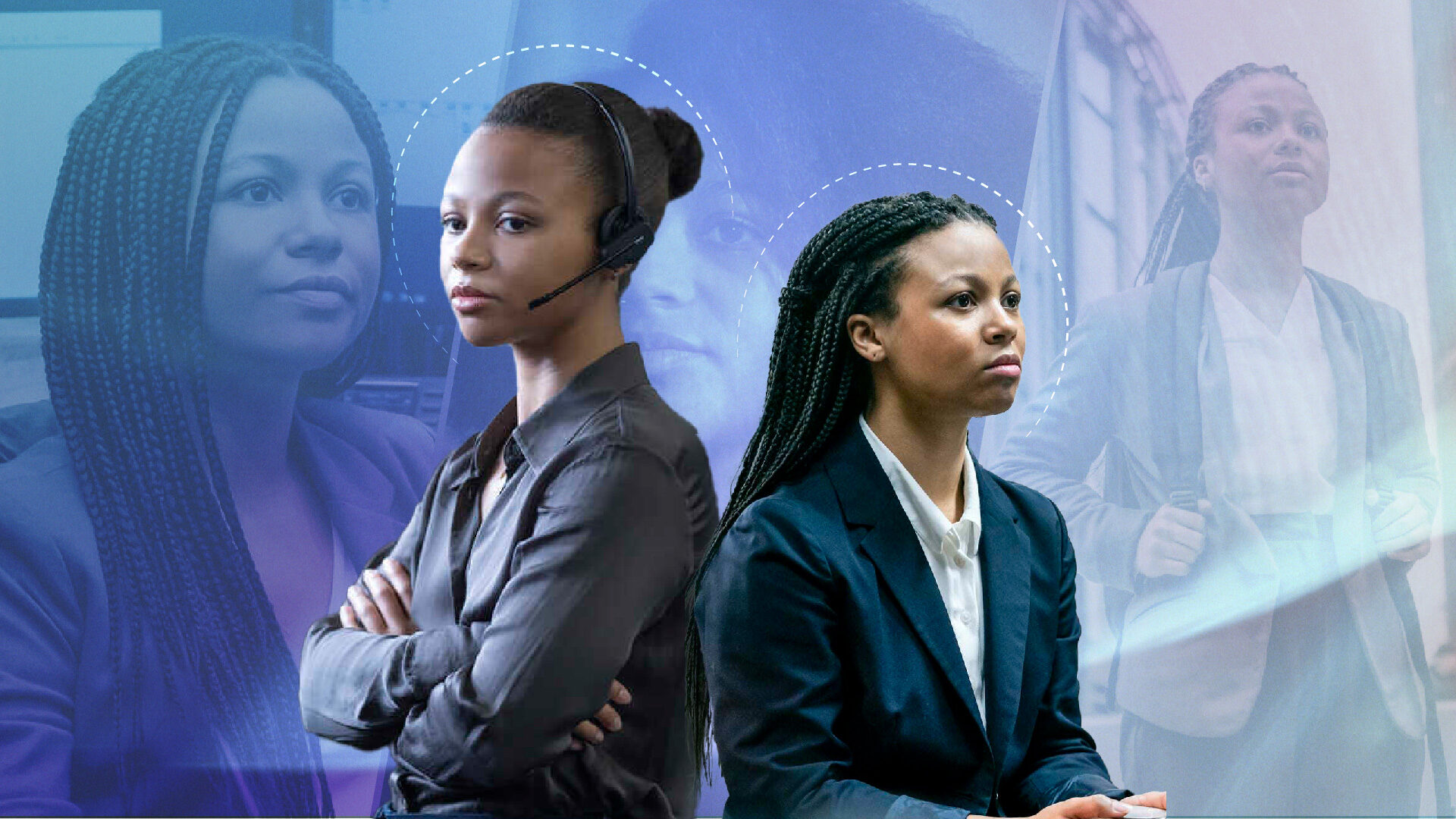
As Black women in corporate America settings and working for “the man,” it’s hard for us to feel seen or heard in spaces that are dominated by cisgender white masculine figures. From being hypersexualized by the male gaze to being counted out because of our gender identity, we’ve always been told to work twice as hard to even get half of what they’ve got and it would be an understatement to say that it’s tiresome. That’s why HBO’s Industry series hits the nail on the head with Myha’la Herrold’s portrayed protagonist Harper Stern.
Harper is a character worth binging the show for and keeps you at the edge of your seat as you watch this 20-something-year-old Black girl claw her way to the top of the corporate food chain while navigating relationships, sex, drugs, and career hierarchies. Quite honestly, Industry may be the most spot-on show to be created about the day-to-day of a Black woman trying to keep her head down while moving through the ranks. For those who may not be hip about what Industry is exactly, it surrounds a group of young, hungry, and scrappy graduates competing against one another for permanent positions at a prestigious London-based investment bank Pierpoint & Co..
When Herrold was first handed the Industry script, she felt a connection with the characters. “Strangely enough, I felt like I knew these people. I understood and related to their struggles as new people in an intimidating industry,” Herrold told Girls United. While she herself has never worked in a corporate America setting, she empathized with Harper’s drive, ambition, and the feeling of wanting to come out on top no matter the risk. Herrold was so invested in Harper and Industry at large that she admitted to Girls United even if she didn’t land a part, she would be eager to join the fandom once it officially aired on HBO.
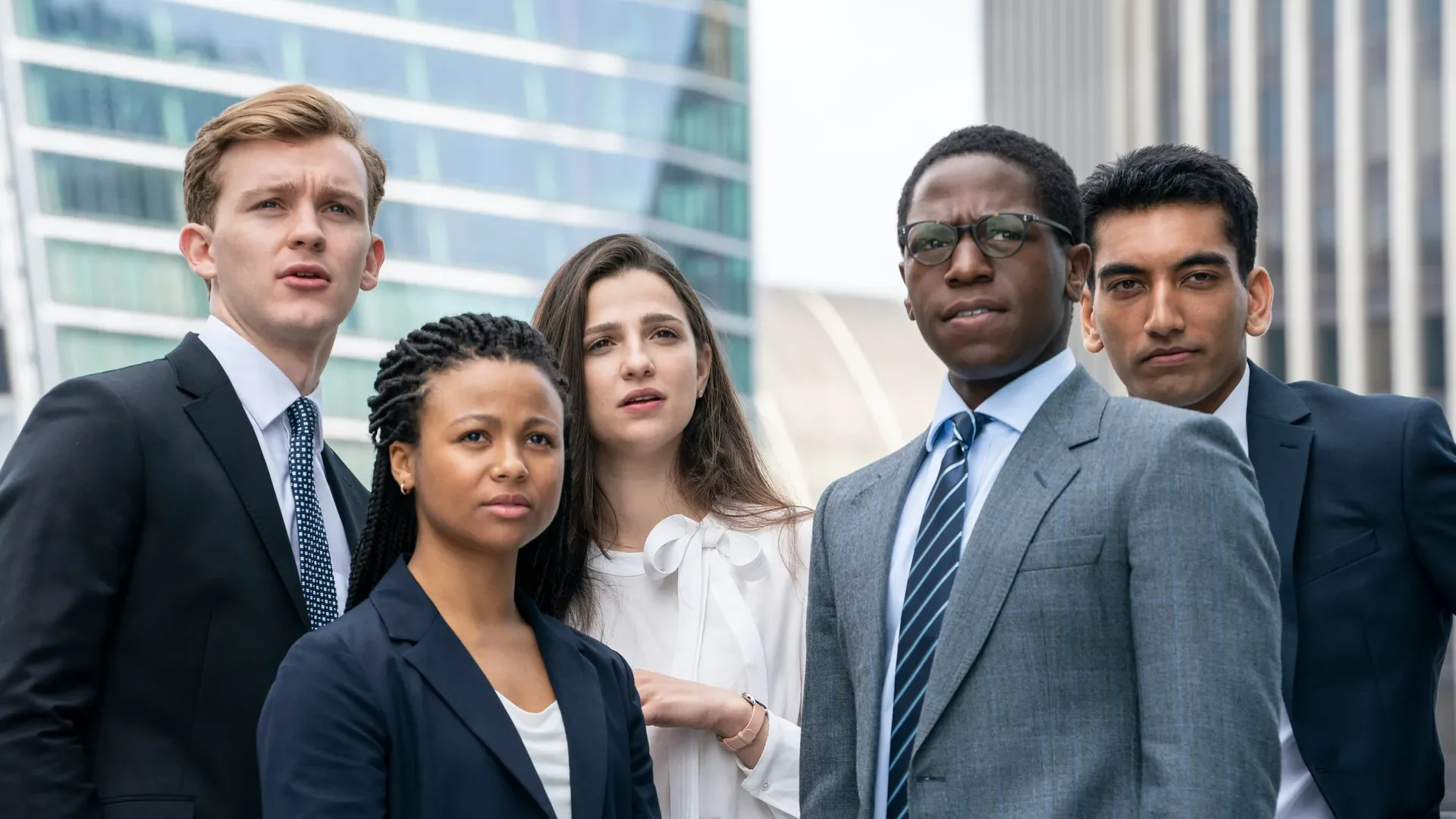
“There was something about Harper’s dry and obsessive need to show up as that girl, regardless of how she was feeling, I also very much identified with. You fake it till you make it and then you make it and you keep going. It was truly one of the best, most well-written scripts I had come across. Up until that moment, I was shocked, amazed, and felt so excited that I had something so well done in my hands,” Herrold continued.
In an exclusive interview, Herrold spoke with Girls United about the growth of Harper Stern’s character, the belief of Black women being in their “villain era,” and how this project differs from starring in Bodies Bodies Bodies with Amandla Stenberg and Pete Davidson.
Harper’s Nose Ring, Braids, And Black Women’s Personal Style In Corporate America
“Actually, at the time my hair was really short. I had a shaved head for five years and I just started growing my hair out. In the script, she had braids but when they cast me, they were like, ‘We love your hair short. You can do whatever you want with it.’ I was like, ‘Well, if I were me and I am, I’m going to another country, I don’t know what that water pressure is like, I’m not going to risk it, I’m just going to do a protective style,’ and it seemed like she would too, going to a different country and not knowing what her life was going to look like.
“It didn’t occur to me because I’ve never been in a corporate world, that wearing a head full of braids in an office was going to be such a huge statement. I had my nose pierced and they were like, ‘You look cool. You can’t wear it in the office but I think it would be nice to let her have some personality outside of work.’ Coming in with it, I think it was just like Harper does Harper and she’s not worried about the perception other than, is she good at her job? She’s not willing to compromise anything because she feels like she doesn’t have to because she can be so good at her work.
“I think she genuinely was not thinking, ‘I’m going to go make a statement.’ She really was just doing her thing and then Eric has that line, ‘What is in your nose? Take that out, you’re at work,’ and she’s like, ‘Oh, that matters, I guess.’, She’ll play by some of the rules, but it was never exactly intentional, which I think ends up being a statement about the kind of person she is. She’s not worried about appearances. She’s not worried about what other people are going to think about her. She’s worried about getting her job done and being as comfortable as she can be.”
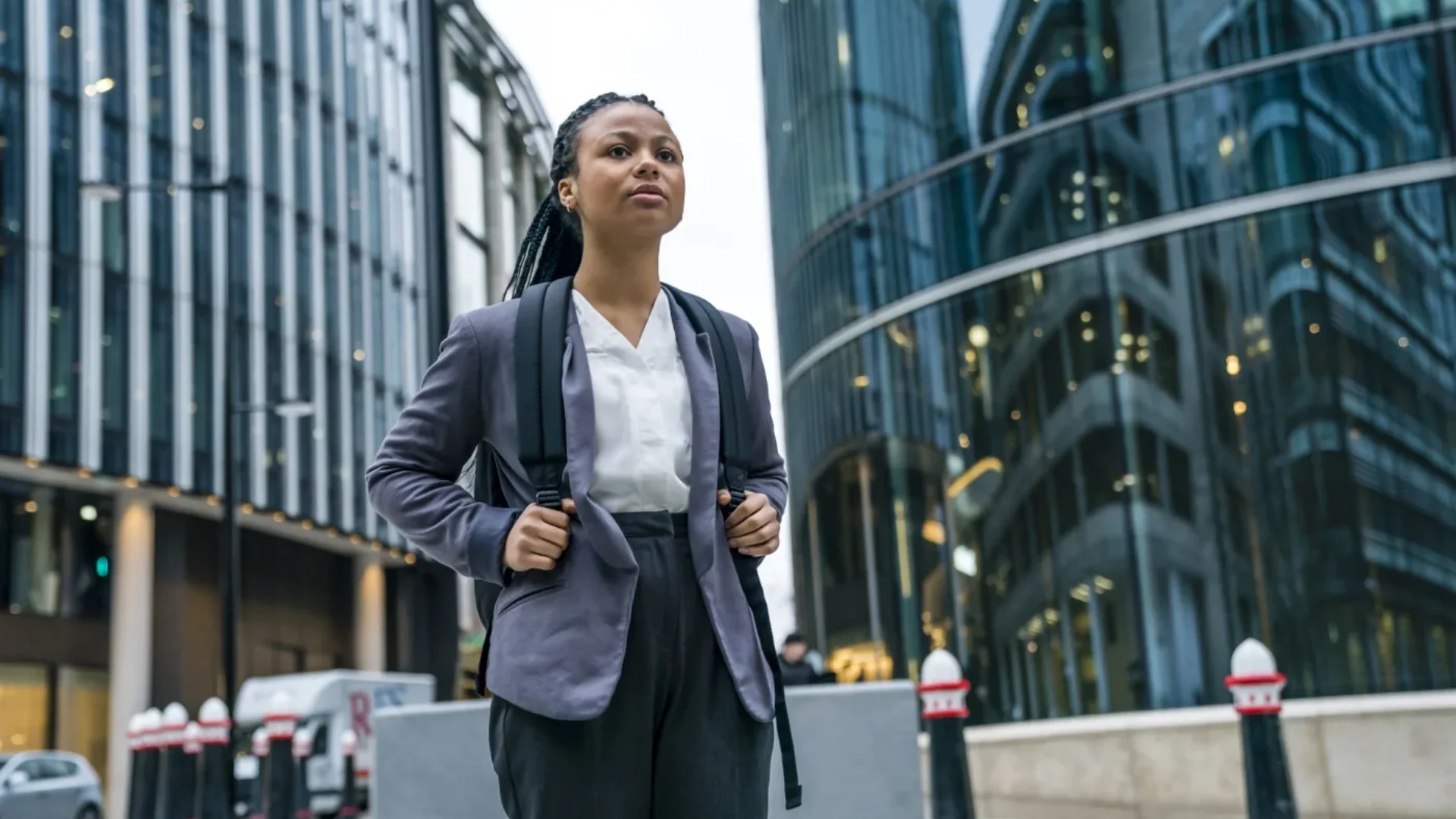
The Feeling Of Otherness As A Black Woman
“Always. I mean, most of my life I’ve felt that way. I grew up in a predominantly white neighborhood and so I was always the other, I was everybody’s only Black friend, and I was always really creative in my expression of self whether it was through fashion or through hairstyles. My mom is a hairdresser, so my hair was different every other week just because I like to play and I want to express myself in that way. Especially where I grew up, people stared at me so much just because I looked not like anything they’d ever seen before. That was not news to me. In college, I wore shaved head. I was exploring, expressing my sexuality, and being kind of androgynous and whatever that was and it was also really easy, but let me not cap entirely. I was tired of doing my hair, but that was part of where I was in that moment.
“I have always felt othered and being a mixed person, I feel othered by both the Black and the white people in general. Entering the industry when I first started out, it was when I had my head shaved and I was presenting more androgynous. I think there were plenty of times when I wasn’t feminine enough, my skin wasn’t dark enough, or my skin wasn’t light enough. I didn’t fit in enough boxes for the industry to understand what to do with me, which was very interesting because I never imagined that the finance box would be the one that I would end up fitting in. I’ve always related to feeling othered. I feel less othered now just because I believe that the first things people know about me are about my work. That makes me feel very much a part of a community of people, of artists and I don’t feel othered in that way and then I don’t worry about the other shit because here I am.”
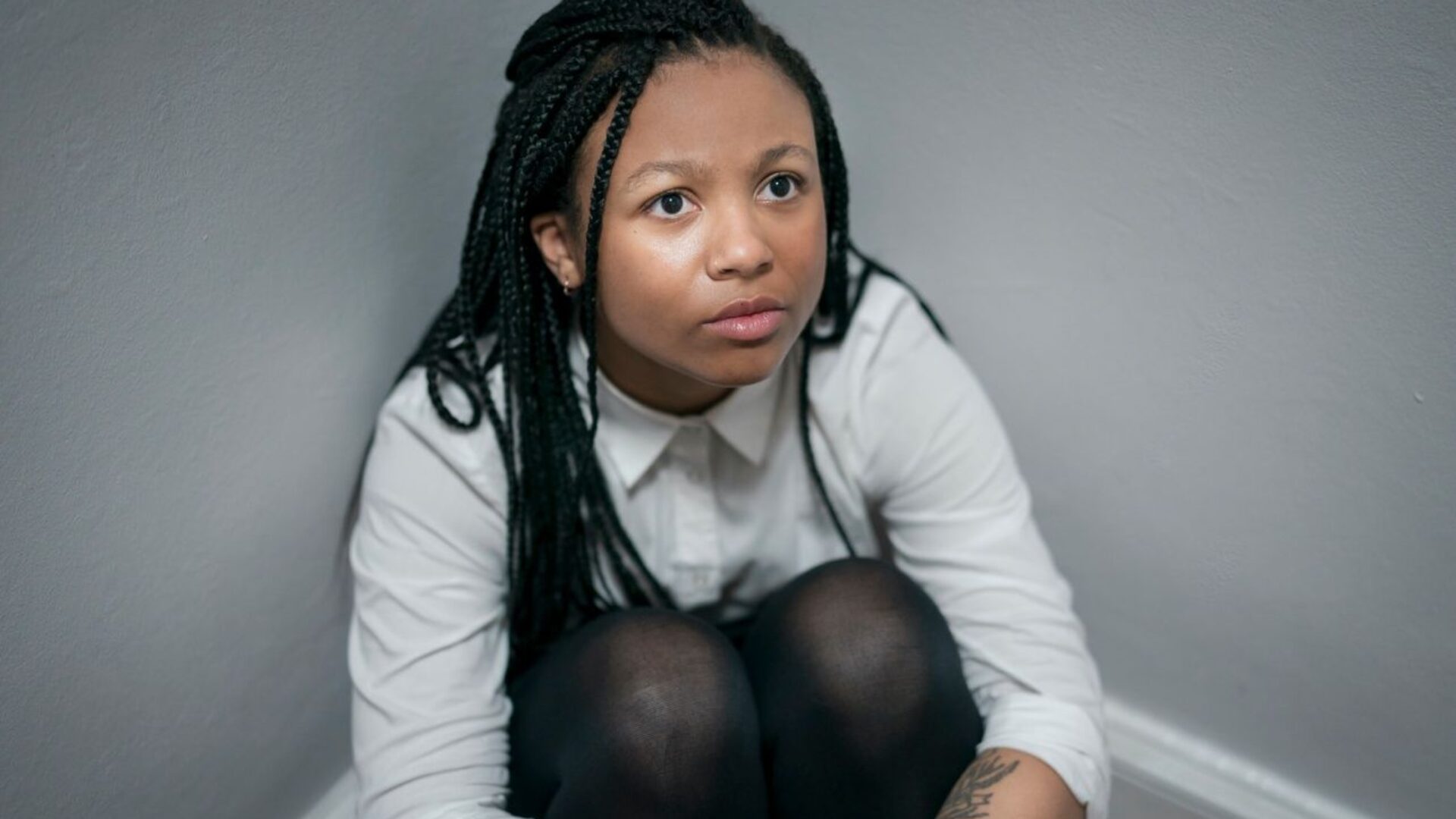
“We Have To Work Twice As Hard…”
“People were saying, ‘Why does Harper specifically come in with all this attitude?,’ and I said to them, ‘Whether you recognize it or think it’s true or not, it is much easier for people when women of color, people of color, Black folks, to count us out entirely if we make a misstep.’ If we make a mistake, if we fall short, it is so much easier for people to count us out entirely. There are no second chances. We have to come prepared. Anything anyone could throw at us, we should already have a resolution and answer, rebuttal, or something. We have to have those problems solved first because we have a lot less chances.
Harper actually says that at some point in the first season to Robert (Harry Lawtey). She says, ‘I can’t make mistakes.’ Because if [Robert] makes a mistake, people say, ‘He was on an off day, or whatever.’ They believe that this person is equipped with X, Y, and Z, that it was just a mistake, not a shortcoming that you’ll never come back from. I have always felt that way in my personal life, in my work, and otherwise. I’m not allowed to make mistakes because if I fail once, that’s the end of it. They’re waiting for us to fail. Whether they think that’s true or not, equality just does not exist in that way. It doesn’t. We have to come smarter and harder every time.”
Is This Season Harper’s “Villain Era”
“I don’t think Harper is a villain. If Harper’s a villain, then they’re all villains. I mean, that’s what the show is. This is an interesting debate because I feel like there’s some hardcore Harper stans and she can do no wrong, which is great and I love that. Then there are other people who are like, ‘she’s the most unlikeable, trash human being to ever live.’ My perspective will always be that she’s human and she’s battling so many internal demons. She’s battling that alongside trying to be the best she could possibly be in this toxic ass environment. She’s trying to play someone else’s game by a set of her own rules and the things that she gets, she earns them, like getting Jessie Bloom.
“She did that. She might have done it by stepping all over her boss, ruining some other relationships, and doing it in a way that you think is not honorable, but the reality is she did it. In that game, if someone else did it that way, people might not look at it like that person’s the villain. They might be like, ‘Oh wow, that guy’s playing the game really well.’ I don’t necessarily think she can possibly be the villain in that world. How could she be the villain? There’s no way.”
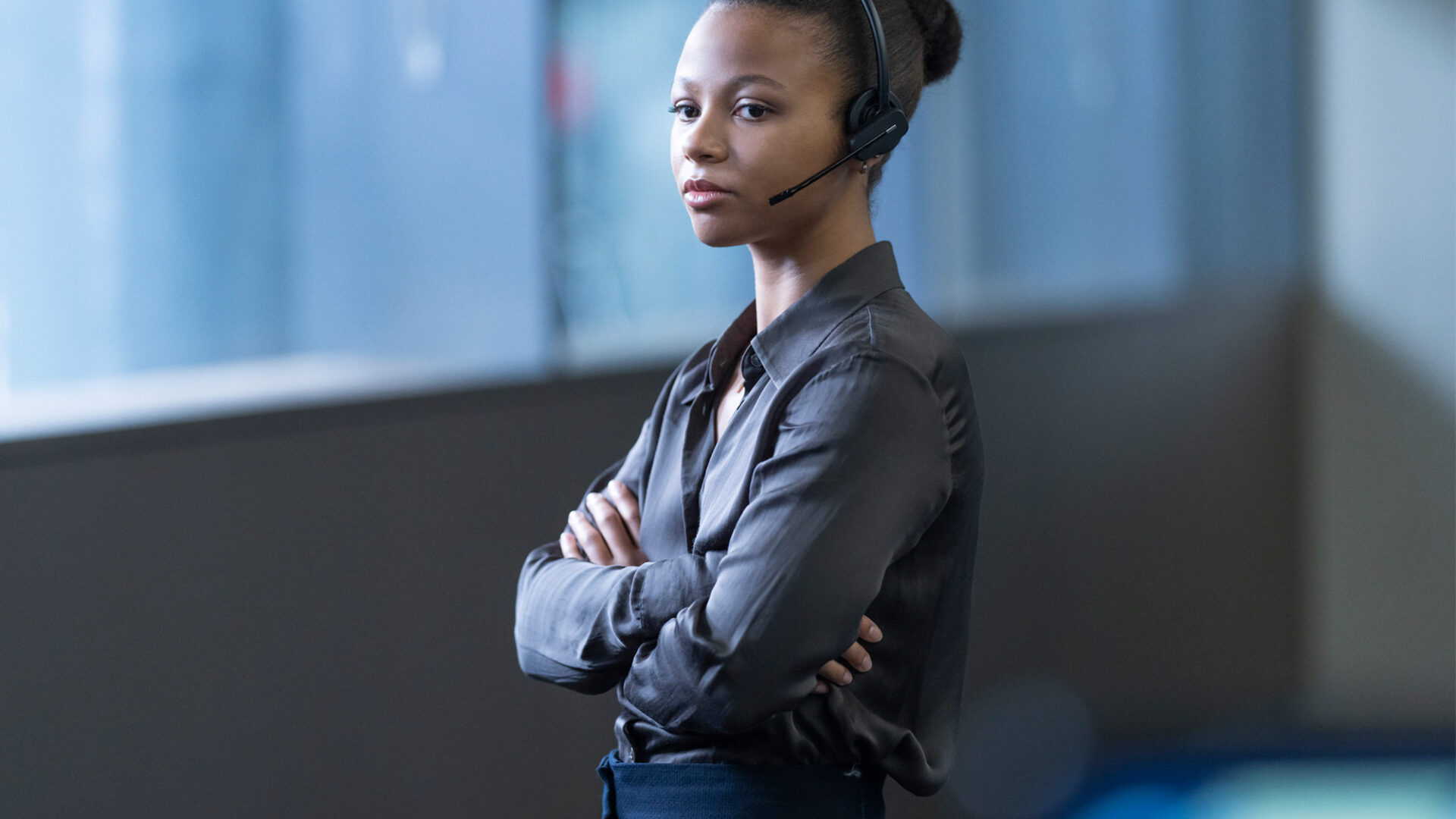
‘Bodies Bodies Bodies’ vs. ‘Industry’
“[They’re different in] damn near every way. The one way that it was similar is that I love all of my castmates and the people I worked with on Bodies just like I love everyone who works on Industry. The biggest difference is the elements. Bodies takes place in a hurricane and we were outside, like the definition of outside. Purely where we were and what we were doing, all of that is different. There’s no similarities in the process at all.”
Mental Health In And Out Of The ‘Industry’
“I would say the biggest thing that I’m practicing right now is advocating for what I need in a real way with others in my personal and professional life. If that means I can’t pick up the phone today to say ‘What’s up?’ even if I want to talk to that person, even if I want to show them love, or even if we had plans and today I’m not feeling like my best self or I know I need extra three hours of sleep and I can’t talk, I have let go of the responsibility of taking care of someone else’s needs before my own. Not to say that I ghost because I don’t. I’m always respectful. I just make sure that I’m watching out for my own health and that’s the same at work.
If something is being asked of me that I wasn’t prepared for or I didn’t know about ahead of time, I make sure I let somebody know that doesn’t work for me because I don’t have time to prepare and I’m not going to show up looking crazy. That’s one of the hardest things as a young actor, as a woman, as a woman of color. Being your own advocate is really hard. It’s great if you have a team, a manager or whoever, [and] they can do a lot of the heavy lifting, but when you’re in another country, you’re all by yourself, and they’re nine hours behind you and you have something to deal with, you have to be firm and respectful in taking care of yourself.”
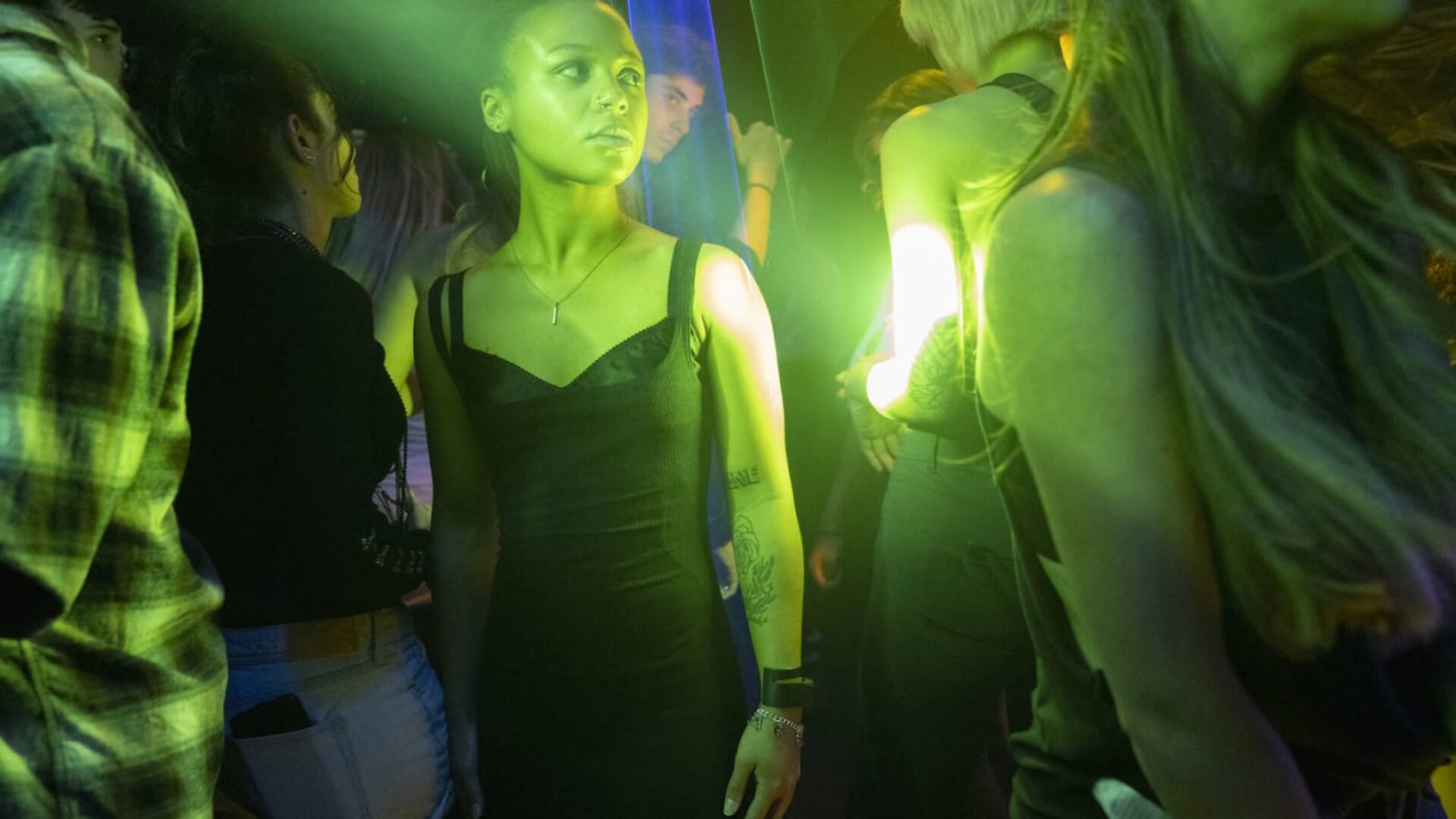
Things I’d Like To Say To Harper Stern…
“Girl, it’s not that serious. You have come this far. On paper and otherwise, you have proven yourself to be a great analyst. You shouldn’t have to prove yourself anymore in this way because you’ve already made it. Just because this trajectory has worked for you before does not mean it’s going to last. There’s only so much a person can take before they cut your ass off. Be careful and if you need someone to talk to, I’m always here for you.”
Three Cheers For The Harper Hive!
“I don’t know if they’re the craziest, but they’re definitely my favorite is the Harper Hive. They call themselves, ‘The Harper Hive.’ Harper can do no wrong to them and they’re just like, ‘Whatever you do, I don’t care I’ll follow you off a cliff. You’re the best, ever.’ I love those Harper Hive people, but I don’t know that I’ve heard a crazy theory. There’s definitely people who say about the show that she’s the least likable character and has no redeeming qualities which I think is kind of a lot. With those things, I’m kind of like, ‘well, you clearly don’t understand the show and that’s on you.’ No crazy theories though. There are quite a few people who want Harper-Robert endgame, which I think is very interesting as well. I don’t know about that one, but there are some people out there who want that, which I think is very interesting.”
If you’re like us and you’ve already binged through the first season of Industry, check out the official trailer for the second season below now streaming on HBO Max.
About D’Shonda: Born and raised in Brooklyn, NY, D’Shonda Brown is the Associate Editor at Girls United. When she’s not interviewing or writing, she enjoys running, dancing, buying sneakers, and binge-watching Lifetime movies.